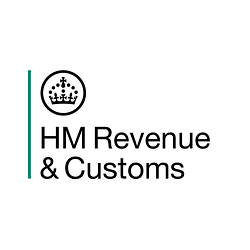
Press release -
HMRC reminds businesses to declare COVID-19 grants on tax returns
HM Revenue and Customs (HMRC) is urging tax agents and accountants to remind their clients that COVID-19 support grants or payments are taxable and should be declared on their company tax returns.
The deadline for customers or agents filing company tax returns (CT600) is 12 months after the end of the accounting period it covers. The deadline to pay Corporation Tax will depend on any taxable profits and when the end of the accounting period occurs.
If companies received taxable COVID-19 support grants or payments they should make sure it is recorded as income when calculating taxable profits.
Taxable grants include:
- test and trace or self-isolation payments in England, Scotland and Wales
- Coronavirus Statutory Sick Pay Rebate
- Coronavirus Business Support Grants (also known as local authority grants or business rate grants)
Guidance on how to complete a company tax return can be found on GOV.UK.
If a company received a Coronavirus Job Retention Scheme (CJRS) grant or an Eat Out to Help Out payment, they will need to do both of the following on their CT600 tax return:
- include it as income when calculating their taxable profits in line with the relevant accounting standards
- report it separately on their Company Tax Return using the CJRS and Eat Out to Help Out boxes
Myrtle Lloyd, HMRC’s Director General for Customer Service, said:
“We want to make sure companies are getting their tax returns right, first time, including any COVID-19 support payment declarations. Support and guidance is available on GOV.UK, just search ‘file my company tax return’.”
Information on which support payments need to be reported to HMRC and any that do not is available on GOV.UK.
The deadline for Self Assessment customers to complete their 2020/21 tax return and pay any tax owed is 31 January 2022.
Last week, HMRC announced they would waive penalties for one month for late filing of tax returns and late payments. The changes mean:
- anyone who cannot file their return by the 31 January deadline will not receive a late filing penalty if they file by 28 February
- anyone who cannot pay their tax liabilities by the 31 January deadline will not receive a late payment penalty if they pay their tax in full, or set up a time to pay arrangement, by 1 April
Interest will be payable from 1 February on outstanding balances.
It is important that customers check and make any changes to their tax return to make sure any Self-Employment Income Support Scheme or other COVID-19 support payments have been reported correctly in their Self Assessment.
HMRC urges everyone to be alert if they are contacted out of the blue by someone asking for money or personal information. Customers should always type in the full online address www.gov.uk/hmrc to get the correct link for filing their tax return online securely and free of charge. HMRC sees high numbers of fraudsters emailing, calling or texting people claiming to be from the department. If in doubt, HMRC advises not to reply directly to anything suspicious, but to contact them straight away and to search GOV.UK for ‘HMRC scams’.
Notes to Editors
- Find out more about Self Assessment
- Find out more about how to pay Corporation Tax
- Customers can appoint someone to deal with HMRC on their behalf, information on how to do this is available on GOV.UK.
- Follow HMRC’s Press Office on Twitter @HMRCpressoffice
Related links
- File your accounts and Company Tax Return
- How to complete a Company Tax Return
- Reporting coronavirus (COVID-19) grants and support payments
- Check if you need to change your Self Assessment return for SEISS
- Self Assessment tax returns
- Pay your Corporation Tax bill
- Appoint someone to deal with HMRC on your behalf
Topics
Categories
Issued by HM Revenue & Customs Press Office
HM Revenue & Customs (HMRC) is the UK’s tax authority.
HMRC is responsible for making sure that the money is available to fund the UK’s public services and for helping families and individuals with targeted financial support.

